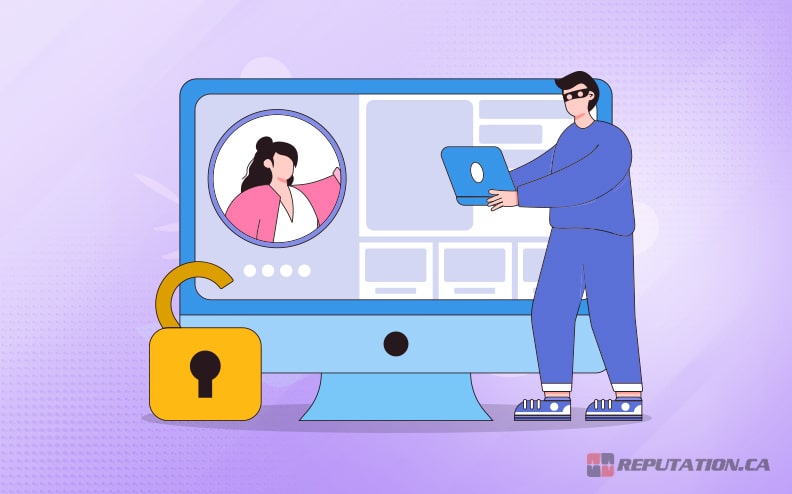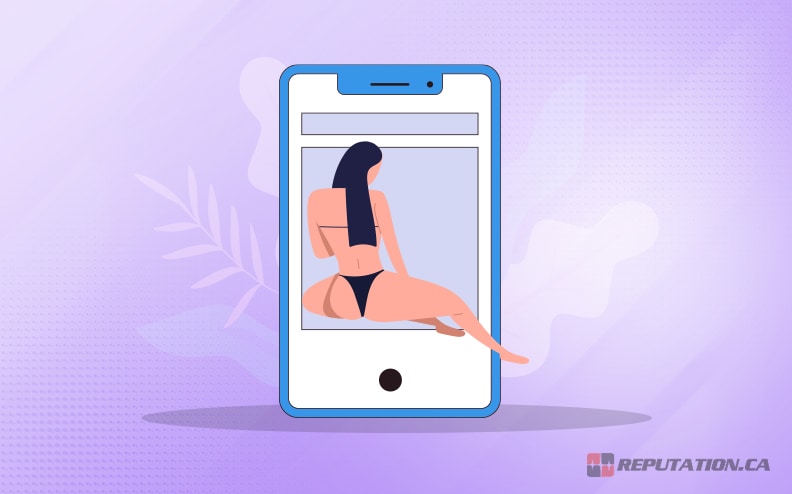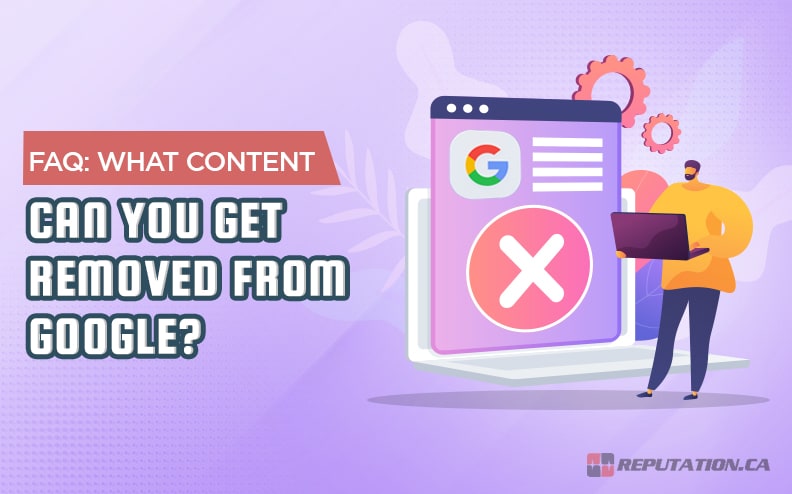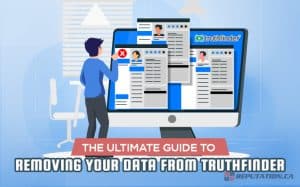The internet is a powerful tool for conveying information across the globe. Whenever the average user has a question about a company, group, or even an individual, it can be as simple as using Google. Google is, by and large, the most popular search engine available and can yield millions of results with a single search. With a few taps of the keyboard, the average user can access information about anyone or anything they care to know. Unfortunately, this can include information about you that you would prefer to keep private, depending on the circumstances.
Some information is the type that relates to your safety, whereas other information relates to the public image you present. Not all information available about you is the type you want to see shared with the public if you can help it. The fact that looking up this information is such a simple matter can cause concern if you value your privacy and image. This means you are probably interested in minimizing the amount of information available about you on the internet.
Unfortunately, removing content from the internet is more of a challenge than most people realize. Hopefully, this article will provide the information you need to successfully remove at least some of the information you want to keep private.
Google offers some options for removing information from their search results, but only specific kinds of information.
Personally Identifiable Information
One thing Google values is the privacy of its users and those whose information is available in the search results. The last thing anyone wants is private, personal information to be made a public matter when we live in a dangerous world. The more the general population can learn about you, the more danger you could be in, especially since the rise of doxxing individuals whose reputations are not held in high esteem. This is why Google allows for steps to be taken to remove certain information that other users could abuse in the pursuit of doxxing. This generally means removing the following information from their search results:
- Confidential Identification: This refers to U.S. social security numbers and their international equivalents and images of identification documents.
- Financial Information: This refers to banking numbers and account information, and credit card numbers.
- User Data: This refers to details such as passwords used to log onto personal profiles on websites.
- Personal Records: This refers to data like medical records and contact information such as your home address, phone number, and e-mail address.
If any of this information is available via Google’s search index, it is within your rights as a user to request its removal. All you need do is submit a form through Google, and they will process the request and then execute the removal of the data.

If you cannot fill out the request yourself, you can also authorize a representative to submit the request on your behalf. The form will have you submit all of the URLs that possess personal information to Google, and they will proceed to remove the URLs from their search results.
However, personal information is not the only thing Google is willing to remove if a request is made. There are other compromising results that you have a right to have taken down.
Exploitative Content
It is no secret that many media outlets love to drop the names of individuals to get more traffic to their websites. Unfortunately, they often do so without the consent of the person they are discussing and will entertain any rumors surrounding you as though they were facts. The worst part is that the website expects you to pay to take these articles down. This exploitative practice is despised by everyone and is worth fighting against whenever it arises. Fortunately, Google is on your side when such exploitative host sites attempt to take advantage of your name for traffic.
Considering that posting articles, true or otherwise, can negatively affect your personal and professional reputation, taking them down is critical. Otherwise, you might find yourself dealing with the consequences of actions not your own. While Google is willing to aid in neutralizing websites that attempt to extort you for funds, they do need some requirements to be met.

Specifically, Google needs the following conditions to be true before they will attempt to take down the posting:
- The content you are trying to get taken down focuses on you as the primary content material.
- The website in question is not a recognized business review site.
- The website is only willing to remove content if you pay them or a third party agency a sum of their choosing.
If the above conditions are met by the URL you submit, you can submit a takedown request similar to the one previously mentioned. You can either submit it yourself or ask a representative to do so. Once the request is made, Google will assess it and remove the page from the search results much the same as they would if your personal information was being posted. However, there is yet more you can remove from Google’s search results if you find them harmful.
Non-Consensual Intimate Images
One of the worst things that can ever surface on the internet is images of yourself in intimate or compromising positions. Specifically, any images or videos that show you in a sexually explicit position posted without your permission are the sort of thing you do not want available for public consumption.
It is reasonable to want such imagery removed from Google’s results to protect your reputation and maintain your dignity as an individual. Fortunately, this is also something Google is more than happy to crack down on. These images are generally reserved for people we are intimate with rather than strangers on the internet. It is also highly illegal for such images to be uploaded publicly without your permission. This is why Google will help you remove any unauthorized intimate images uploaded to the internet.
If you want an image removed from Google’s search results, it needs to meet certain criteria outlined by Google. The image must:
- Show you in the nude, during a sexual act, or in an intimate state.
- Have been uploaded without your express consent.
These criteria help to determine whether the image has any right to be available for public consumption or not. If the images fall into the categories above, you can submit a takedown form with Google for them to evaluate.

As with the others, you would submit the URLs where the images are posted so Google’s administrators know which pages to remove from the search results.
If the images being posted of you are fabrications meant to make it seem like you were in an intimate situation, you maintain the right to have those taken down. Fake images can be just as disheartening as the real thing, especially since current software allows for creating extremely convincing fabrications.
Fortunately, Google allows for the same takedown options for the fakes as the genuine article. The requirements are a little different, though:
- The image must clearly be a depiction of you.
- The imagery must be proven to be a fabrication, which is easily accomplished with the right software.
- The false images must have been distributed without your consent, just like a real image would have been.
Like real images, you will submit a request with the associated URLs to identify the pages you want to be taken down. Fake images can have just as adverse an effect on your overall reputation as a real one, so you will want to crack down on them with the same enthusiasm. The fact is, Google is very open to removing any harmful content from their pages if you have the evidence to support the necessity of its removal.
What to Do if Google Will Not Help
Now, on the off chance that Google cannot help you remove content from their search results, there is still an option available. If the page you want to be taken down does not meet the criteria for Google to remove on your behalf, you might have to reach out to the domain directly and request the page be removed.
This is not a perfect solution since no overarching committee or administrator is there to enforce the request. Still, it can be an effective “break glass in case of emergency” option. Often, many domains are reasonable and will pull the pages as soon as they are asked. Of course, if the domain is uncooperative, you might need to consult with a legal representative, but that should not be necessary.

Getting pages or images about you pulled from Google can be a remarkably simple situation. Other times, it can be extremely complicated. Once you find a domain with content negatively affecting you, contacting the domain’s owner can be as simple as composing an e-mail or making a phone call. Unfortunately, if the domain is unwilling to pull the posts, you might have to put up a bit more of a fight.
With that in mind, there is also the question of finding offensive posts. However, this can be just as simple to manage, and you do not even have to be the one to do it.
Finding Harmful Posts
To find posts that negatively impact your reputation, you might have to do a little research. In some cases, it is as simple as just using Google to look yourself up to see if any posts might impact your image. However, it can be somewhat of a hassle to be doing this level of research yourself when you have your own life to focus on. Fortunately, there are services available that will investigate on your behalf and keep an eye out for mentions of your name on social media and other web pages easily accessible from Google.

This is an invaluable tool since you cannot fix these pages unless you are aware of them. Once the pages are found, you can begin the process of having the ones who searched for you submit the takedown requests we have mentioned in this article. At this point, the 3rd party you have hired serves as your representative and can submit the requests on your behalf. We know this can be a somewhat daunting prospect, putting your reputation in the hands of another, but it saves time and gets the job done at the end of the day.
This means the only thing left is to find a representative that can offer a comprehensive service.
Take Your Reputation Back
Now that we are fully aware that Google can take unwanted pages down on your behalf, you can take action to restore your reputation. Images, articles, and exploitative websites are all in Google’s crosshairs and offer the resources you will need to take the postings down. Your reputation is fragile and can be devastated by the poor efforts of an individual or company that is all too happy to use your name for the sake of clicks. In today’s society, you need to keep a hawk’s eye view on your public image to remain a relevant and respected entity in society. However, maintaining that level of vigilance is extremely difficult for a single person to handle. This is why there is no shame in looking for assistance.

That is where we at Reputation come into play. We offer a comprehensive and effective reputation management and marketing service that you can use to uphold your image. We will scan Google and social media for mentions of your name and report our findings. If anything needs to be taken down, we can even process the takedown requests through Google’s automated system on your behalf. You should never allow your reputation to fall victim to those who simply want to turn you into a revenue stream. So, if you want to take your reputation back into your own hands, contact us today and see how we can be of assistance. We look forward to assisting you however we possibly can!












